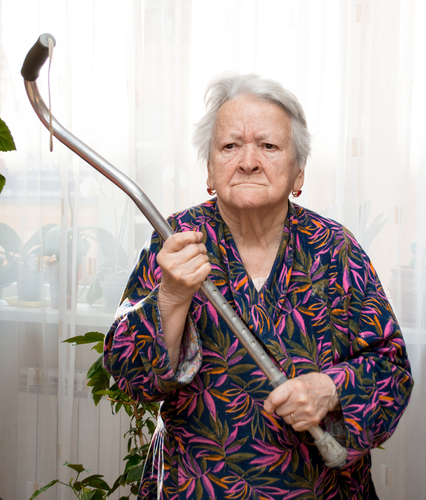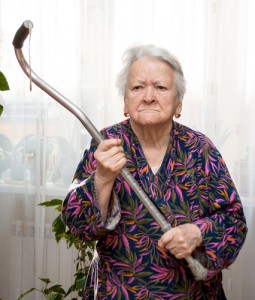Alzheimer’s Patients in California Not Responsible For Violent Episodes Against Caregivers, According To State Supreme Court
Written by |

 The California Supreme Court recently decided, by a 5-2 decision, that people with Alzheimer’s disease cannot be held responsible for injuries caused to their in-home caregivers, and that a prior awareness of this fact precludes a legal accusation, CBS News recently reported, quoting an Associated Press report.
The California Supreme Court recently decided, by a 5-2 decision, that people with Alzheimer’s disease cannot be held responsible for injuries caused to their in-home caregivers, and that a prior awareness of this fact precludes a legal accusation, CBS News recently reported, quoting an Associated Press report.
According to the report, the decision by the California Supreme Court is a result of a case involving an accusation of negligence and battery from an in-home caregiver who was assaulted by a woman with Alzheimer’s during her work in providing daily care.
CBS News reported that the Court noted in its decision that the caregiver’s previous experiences in treating people with Alzheimer’s disease, in which violent outbursts can be common in its later stages, as well as her prior awareness that the woman was prone to violent outbursts, were mitigating circumstances that contributed to their verdict.
In addition the particulars of the case, there is reportedly already-existing laws that govern liabilities for patients and their institutional caregivers, both in hospitals and nursing homes, which excludes any compensation for injuries.The majority of the judges on the bench called attention to the fact that treating in-home aides in a different way legally could incentivize families to put their Alzheimer’s patients into institutions, as opposed to finding solutions for caring for them at home.
[adrotate group=”3″]
However, the two judges who didn’t agree with the decision noted that the decision could constitute a slippery slope that could impact other high-risk workers and jobs, such as police officers and veterinarians, who share similar risks to Alzheimer’s caregivers in dealing with patients or people who are sometimes unpredictably violent. The two judges added that Alzheimer’s patients have families who can bear the legal responsibilities for their loved ones, and that violence isn’t always a certainty with Alzheimer’s, especially in the early stages of the disease.
Despite the court’s decision, one of the judges noted that the same ruling can’t be extrapolated to every workplace situation, and that that the ruling doesn’t preclude future lawsuits by in-home caregivers who were not provided with all of the information related to a possible violent patient, or who suffer aggression not related to Alzheimer’s symptoms.





